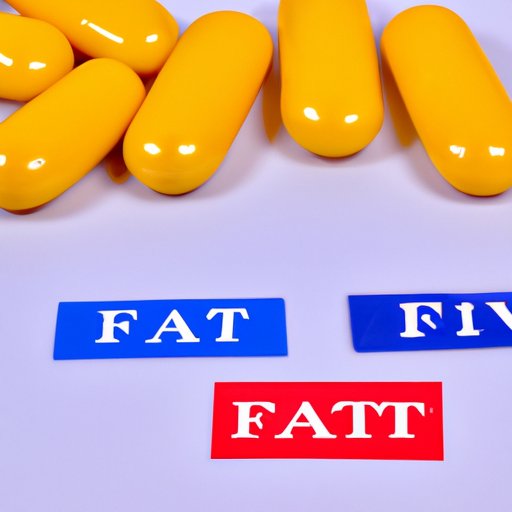
I. Introduction
Most people don’t know about fatty liver disease. But this condition, which affects as many as 25% of adults in the United States, can have serious health consequences. In this article, we will explore what fatty liver disease is, its risk factors, symptoms, and prevention methods.
II. The Ultimate Guide to Reversing Fatty Liver Disease
Fatty liver disease is a condition that occurs when fat accumulates in the liver cells. This buildup of fat can lead to liver inflammation and scarring. In turn, this can lead to a variety of health conditions, including liver failure.
Causes of fatty liver disease include obesity, diabetes, high blood pressure, and high cholesterol. It can also occur in people who consume a lot of alcohol, although this form of the condition is called alcoholic fatty liver disease.
Some people with fatty liver disease may not experience any symptoms, while others may feel fatigued or experience upper abdominal pain. To reduce the risk of developing fatty liver disease, it is essential to take preventative measures.
III. 5 Dietary Changes to Reverse Fatty Liver Disease
One of the most effective ways to improve liver health is to make dietary changes. Below are five dietary changes that can help reverse fatty liver disease.
1. Reduce Sugar and Refined Carbs
Sugar and refined carbohydrates can contribute to liver inflammation and fat accumulation. Instead, it is recommended to consume whole grains, fresh fruits, and vegetables. Be aware of hidden sources of sugar in processed foods such as condiments, dressings, and sauces.
2. Increase Fiber Intake
Fiber can help the body absorb and remove excess fat, toxins, and cholesterol, reducing the strain on the liver. Eating fiber-rich foods such as lentils, beans, nuts, and vegetables can be beneficial.
3. Focus on Healthy Fats
Healthy fats are essential for liver health and overall well-being. Consuming foods with monounsaturated and polyunsaturated fats such as avocado, nuts, seeds, oily fish, and olive oil is recommended. Saturated and trans fats should be limited.
4. Incorporate Liver-friendly Foods
Specific foods such as garlic, berries, leafy greens, and cruciferous vegetables have been shown to support liver health and reduce inflammation. Including these items in your diet can be beneficial for fighting fatty liver disease.
5. Limit or Abstain from Alcohol
Alcohol consumption can lead to fatty liver disease and liver inflammation. It is recommended to limit alcohol intake or abstain from it altogether to improve liver health.
IV. Exercising Your Way to a Healthier Liver
Exercise can help reduce liver inflammation, improve blood sugar control, and aid in weight loss, all of which can contribute to healthier liver function. Engaging in regular exercise, such as walking, running, or cycling, is recommended.
Add resistance training to your exercise regime. Resistance or strength training can improve muscle mass, metabolism, and overall wellness. Consult with your doctor before making any changes to your exercise routine.
V. The Role of Supplements in Combatting Fatty Liver Disease
While supplements are not a substitute for a well-balanced diet and regular exercise, some can support healthy liver function.
Milk Thistle
Milk thistle is a supplement that has been shown to support liver health by reducing liver inflammation. It comes in capsule or tincture forms, and it is generally considered safe for most people. Research shows that it may be effective in treating fatty liver disease.
Omega-3 Fatty Acids
Omega-3 fatty acids, found in fish oil and flax seeds, are known to have anti-inflammatory properties and may help reduce liver inflammation. It is best to consume these through food sources, but supplements are available for those who cannot consume them in their diet.
Coffee
Coffee has been shown to have liver-protective properties and may be helpful in reducing the risk of liver-related diseases. Regular black coffee has been shown to be beneficial and is a good alternative to sugar-laden coffee drinks.
VI. Mindful Eating: How Slowing Down and Being Present Can Help Reverse Fatty Liver Disease
Mindful eating is a technique that involves being present and aware during meals. It can help reduce stress levels, improve digestion, and prevent overeating, which can contribute to liver inflammation and fat accumulation.
To practice mindful eating, start by turning off distractions such as TV and phone. Pause between bites, savoring the flavors and textures of the food. Take your time and pay attention to your body’s hunger and fullness signals.
VII. Conclusion
Fatty liver disease is a prevalent condition that can have significant health consequences. Fortunately, it is reversible with some simple lifestyle changes, including dietary changes, exercise, supplements, and mindful eating. Taking care of your liver is essential for your overall well-being, so take action today!
Start by reducing your sugar intake, incorporating liver-friendly foods, and engaging in regular exercise. Consult with your healthcare provider before starting any supplement regimes. By taking small steps each day, you can reverse fatty liver disease and improve your overall health.




